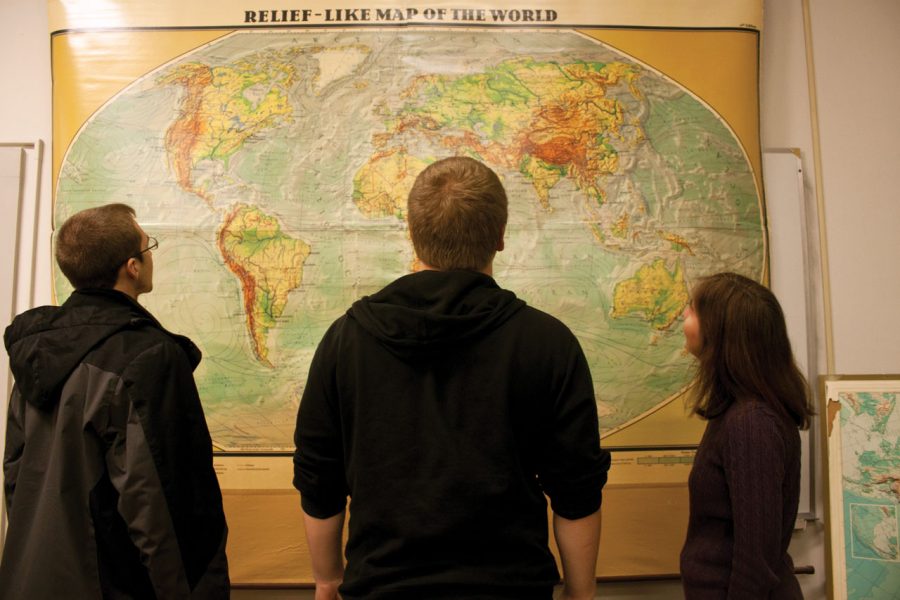Community discusses global competency in young people
February 16, 2012
In an unscientific poll conducted on the UNA campus, 33 students out of 100 could point out where a specific country was located on a world map. Additionally, 67 students could not locate a given country on the map.
The 67 students could not locate Afghanistan, Pakistan, Iran, the Czech Republic, Brazil and Turkey.
According to many experts in the world of academia, students are missing one key bit of knowledge-basic understanding of the world and where countries are located.
“We certainly are going through an awkward period where the quality of life has been so good where people have thought they didn’t have to pay attention to what is going on,” said Dr. Greg Pitts, chair of the Department of Communications.
Many professors believe the education students receive is the reason to blame for lacking global competency in young people.
“The simple answer to it is we don’t teach it,” said Department of Geography Chair Dr. Bill Strong.
Strong said the only times geography is discussed in depth is in the third and seventh grades. Often, geography is simply infused into the history courses, he said.
“Until education leaders and politicians realize that a knowledge of geography is important (the numbers will continue to be bad),” Strong said.
Many believe studying abroad will help global knowledge issues that some Americans have. Universities like UNA have invested in study abroad programs to help their students gain knowledge of the world around them.
“Our parents have not necessarily traveled abroad,” Pitts said. “As a global citizen, we, the United States, impact the rest of the world and the rest of the world impacts us.”
Pitts and Strong both said in other countries the education on world geography and history is at a much higher caliber than that of in the United States.
“Other people manage to keep track of us, rather than us keep track of them,” Pitts said.
Pitts said the Internet is a good resource for people to have to learn more about the world around them, but it is also building a wall between countries.
“(The internet) does give us the ability to learn more about the world… but it is a curse if we don’t take advantage of that,” Pitts said.
Strong said that Americans should learn more about other countries in order to be more productive.
“It’s a global community and we are all linked,” Strong said. “We trade and people trade with us, that’s a good thing. Nothing replaces getting out there and seeing things.”
Strong said getting out in the world and seeing culture is the best way to learn about other countries.
“I’m a firm believer in getting out there and seeing things,” Strong said.
Many students don’t learn basic geography and world knowledge skills in college because it’s not required, Strong said.
“I can’t show you where anything on the map is at, because we never studied geography at my high school,” said UNA student Maddie Wade.
Students like Amanda Frazier, a nursing student, blame high school teachers for her lack of knowledge in geography.
“I have problems with maps because my teachers in high school weren’t there to actually teach,” Frazier said. “Most of them were only there to coach sports, so there wasn’t any real teaching or direction in the classroom.”
Oftentimes, world geography is forgotten in high school, said UNA junior Allison Stark.
“I can show you where the countries are at, but only because I remember them from my seventh grade geography class,” Stark said. “When I got to high school, American geography and history was emphasized more, and world geography wasn’t really taught.”
Students like Music Education major Ethan Lolley feel that it is the student or the citizen’s responsibility to learn about the rest of the world.
“I know where the countries are at because I made my education good,” Lolley said. “You have to go out and earnestly seek further instruction and education. You have to take initiative to make yourself a well-rounded student.”



![Caleb Crumpton [COURTESY OF UNA SGA]](https://theflorala.com/wp-content/uploads/2024/07/caleb-crumpton-courtesy-of-SGA-425x600.jpg)






